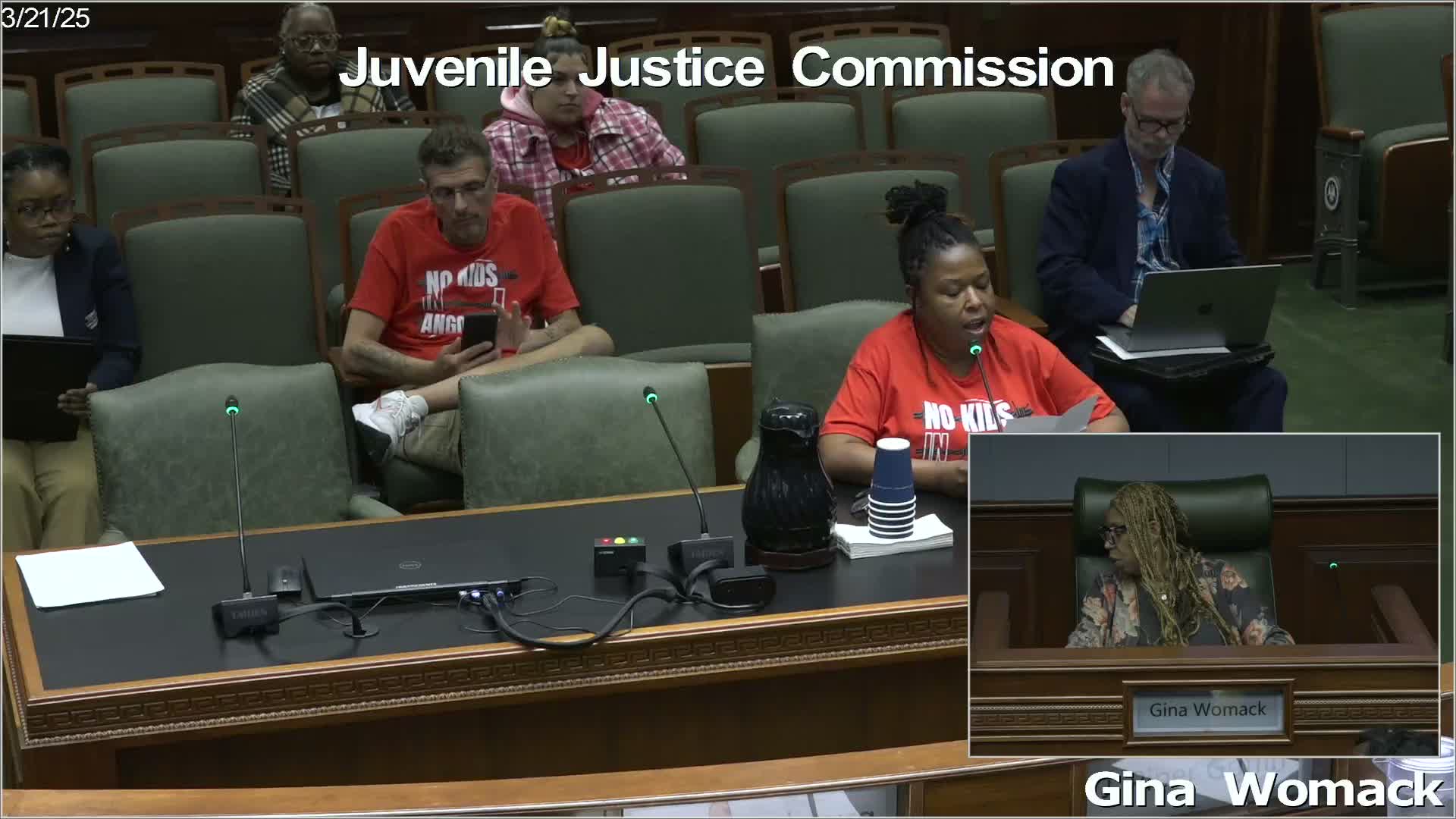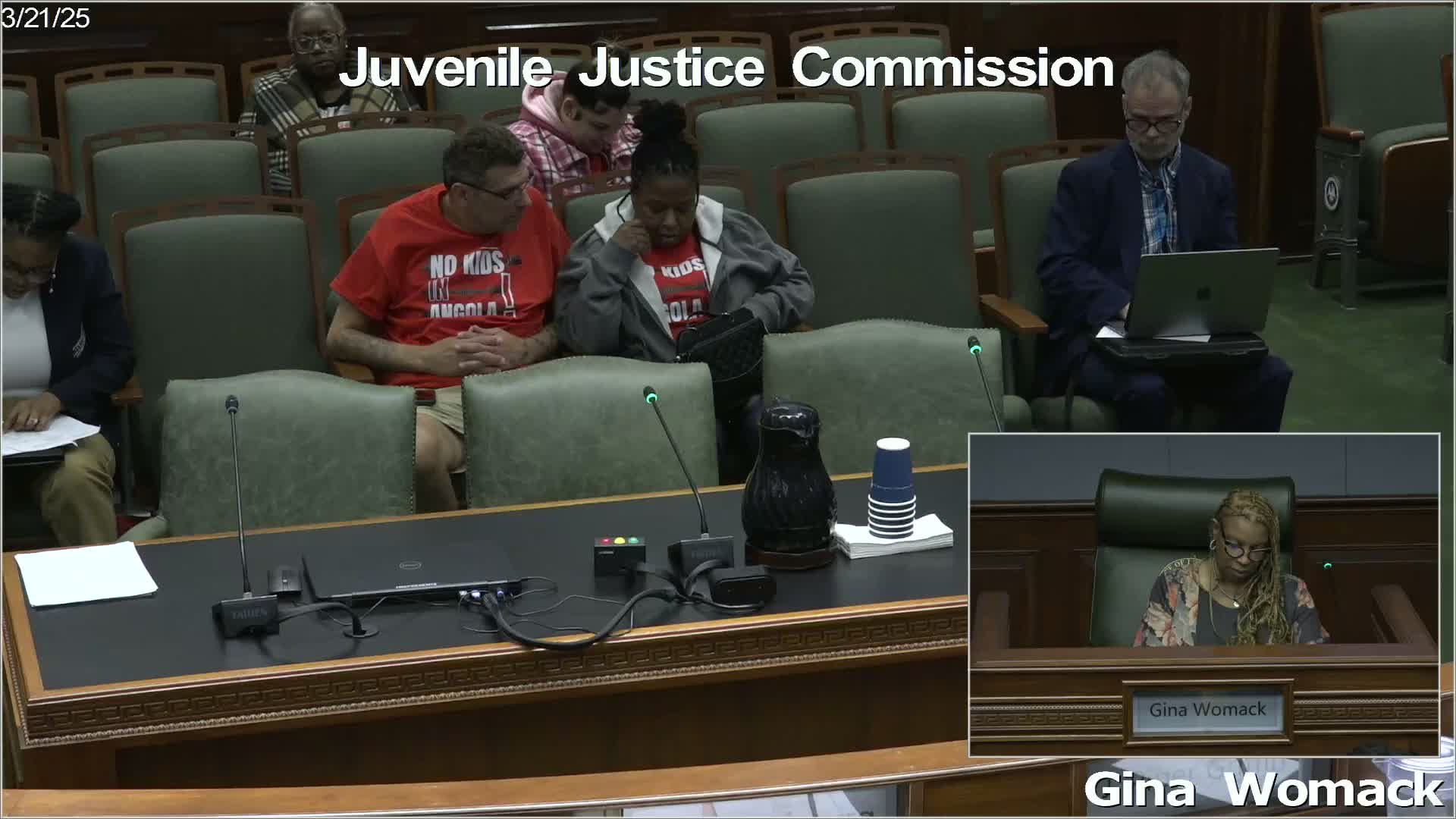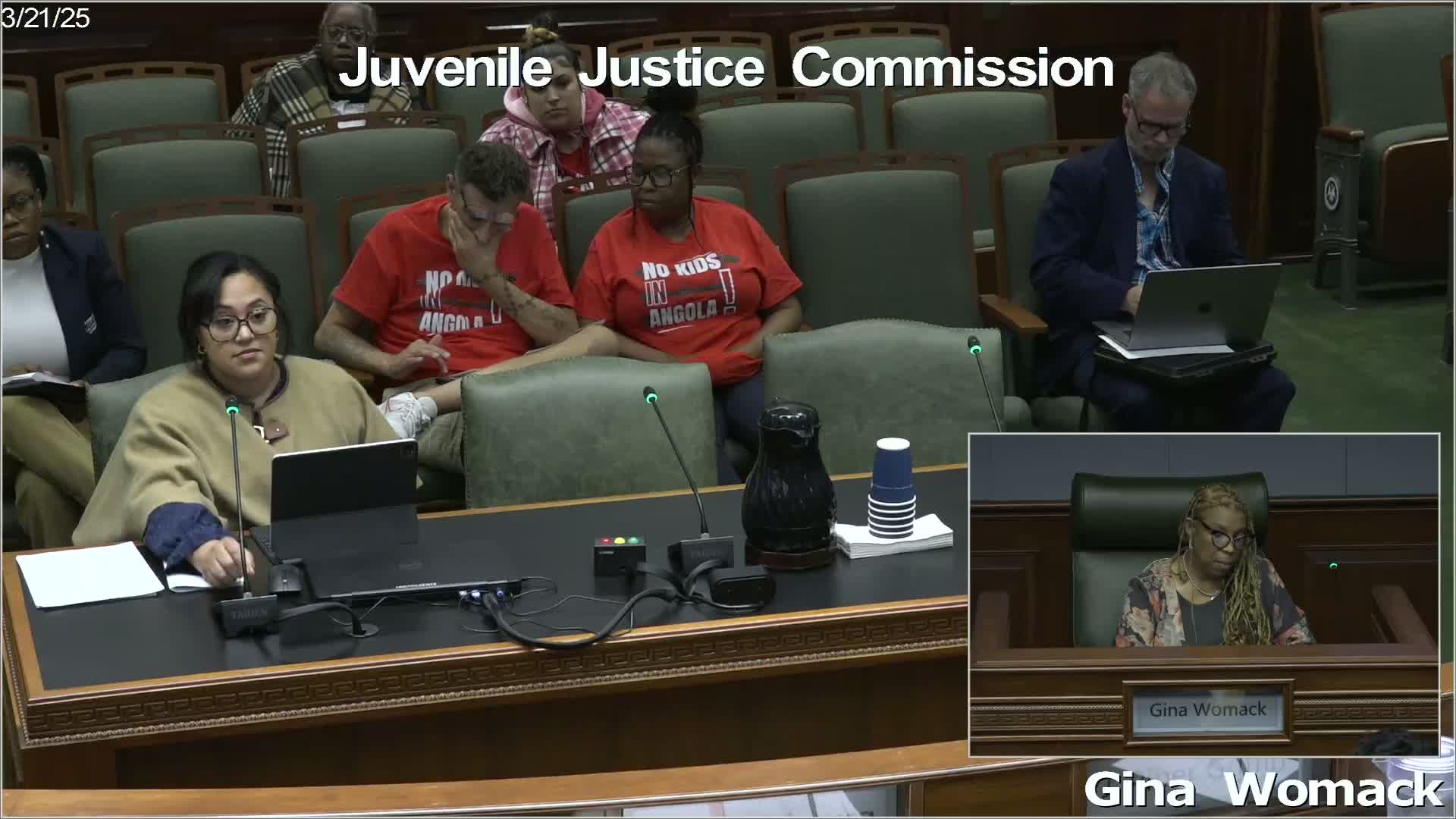Article not found
This article is no longer available. But don't worry—we've gathered other articles that discuss the same topic.

Families, advocates and commissioners warn Amendment 3 could expand adult charging of youth; commission members urge public education ahead of vote

Commission hears report on juvenile facility funding; Jetson Center and regional projects cited

